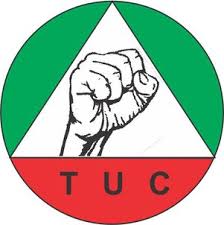The Trade Union Congress (TUC) has called on the Federal Government to revert the petrol pump price to its June 2023 levels, in a bid to ease the hardship currently faced by Nigerians.
Speaking at a press conference in Abuja on Thursday, TUC President, Comrade Festus Osifo, urged the government to take urgent steps to stabilize the exchange rate and ensure that Nigeria’s state-owned refineries are fully operational.
He noted that these actions would help further reduce fuel prices and alleviate the burden on citizens.
“We demand that petrol prices be even lower than what they were before June 2023,” Osifo declared. He called for the provision of foreign exchange to the Dangote Refinery at a preferential rate of ₦1,000 to $1, significantly lower than the current exchange rate of over ₦1,600, to stabilize fuel prices.
Osifo explained that granting the Dangote Refinery this preferential rate could bring petrol prices back to the June 2023 figures.

He also emphasized that no government should allow its critical sectors to be solely controlled by market forces, urging active intervention from the Federal Government in managing the oil sector.
Since June 2023, petrol prices in Nigeria have skyrocketed, with the Nigerian National Petroleum Company Limited (NNPCL) increasing the price from ₦184 to ₦998 per litre.
The TUC President highlighted the necessity of keeping petrol accessible and affordable for all Nigerians, describing it as essential for every household.
The TUC also called on the government to ensure petrol is both available and affordable. “We are urging the Federal Government, through the Nigerian Midstream and Downstream Petroleum Regulatory Authority (NMDPRA), to grant licenses to all marketers for lifting petrol from the Dangote Refinery,” Osifo said.
Additionally, Osifo suggested that the NNPCL should explore alternative sources of refined petrol if the Dangote Refinery is unable to meet the country’s daily fuel demands.
“If Dangote’s output is less than 15 million litres per day, it won’t meet national requirements. While efforts to increase production continue, we are asking the government to seek other sources to address the shortfall and ensure petrol availability across Nigeria,” he concluded.
Further updates will follow.



